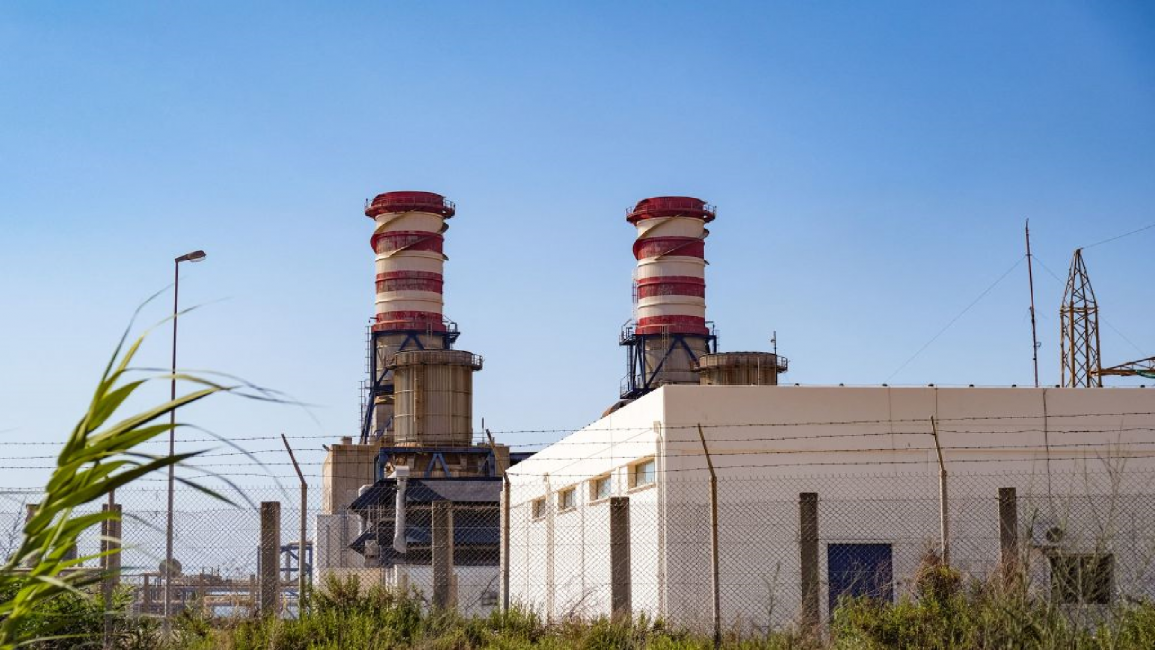Syria 'ready' to help Lebanon with gas, electricity transit
Syria on Saturday approved Lebanon's request to import Egyptian natural gas and Jordanian electricity through its territory to help with its crippling energy crisis, Syria's state-run SANA news agency reported.
The announcement came after a Lebanese ministerial delegation visited Damascus to discuss a 2009 agreement that allowed Lebanon to import natural gas from Egypt through Syria.
According to SANA, head of the Higher Lebanese-Syrian Council Nasri Khoury said the two sides agreed to follow up on the procedures through a joint technical team to discuss necessary arrangements.
"The Syrian people are also suffering from the energy (crisis) just like the Lebanese people, and the Americans are occupying (Syria's) gas wealth," said Syrian Minister of Oil and Mineral Resources Bassam Tohme, adding that the US were dealing with his country's resources in "whichever way they wanted".
After meeting with Tohme, Lebanese caretaker Energy Minister Raymond Ghajar confirmed that the Egyptian gas would reach only the Deir Ammar power plant, near Lebanon's northern port city of Tripoli.
The Lebanese delegation was headed by caretaker Deputy Prime Minister Zeina Akar, who also holds the foreign and defence portfolios in the caretaker cabinet. It also included Ghajar, caretaker Finance Minister Ghazi Wazni, and General Security agency chief Abbas Ibrahim.
It was the first time a delegation of this level from Beirut visited Syria since the war there began in 2011.
The Lebanese officials were greeted by Syrian Foreign Minister Faisal Mekdad at the Syrian side of the border in Jdeidat Yabous – about 45 km west of Damascus - just before 11 am (8 am GMT), according to local media.
The energy crisis in Lebanon has exacerbated in recent months due to fuel shortages necessary for power plants and private generators, as the Lebanese Central Bank gradually lifts subsidies because of dwindling US dollar reserves.
Power outages are lasting up to 22 hours a day in some areas.
Security forces have in recent weeks found millions of litres being hoarded and hidden across the country with some arrests being made.
Many sides in Lebanon blame smuggling into Syria as being one of the main reasons behind the fuel shortage, as hundreds of fuel trucks have been allegedly caught making the cross-border journey where oil derivatives are more expensive than in Lebanon.
"Syria is (looking) positively to this meeting and welcomes any initiative by the Lebanese side towards Syria, therefore (we) will not stand as a hurdle in the face of any agreement that will benefit Lebanon," Nasri Khoury told reporters upon the Lebanese delegation's arrival.
Much of Syria’s infrastructure has been destroyed in the 10-year war, and any deal to use Syrian territory to import Egyptian gas into Lebanon would require such infrastructure be repaired.
The gas would reportedly travel through Syria’s Homs, coastal Tartus, before reaching the Deir Ammar power plant in northern Lebanon.
Syria is also facing an electricity crisis amid fuel shortages, as power cuts have become common and last long hours.
Saturday's visit comes after the Lebanese presidency last month said that Washington has agreed to help Lebanon secure electricity and natural gas from Jordan and Egypt through Syrian territory.
This implies that the US is willing to waive Western sanctions which prohibit any official transactions with the Syrian government, which have hampered previous attempts by Lebanon to source gas from Egypt.
Beirut has maintained diplomatic ties with Damascus, but it adopted a so-called policy of dissociation from the conflict since it started in 2011, which put a dampener on official dealings.
Lebanese security officials and politicians have made several visits to the war-ravaged nation in recent years, but almost exclusively in a personal capacity or on behalf of political parties that support President Bashar Al-Assad's regime.
They include representatives of the powerful Iran-backed Hezbollah paramilitary group which has been battling alongside Assad's forces in Syria since the early stages of the war.



